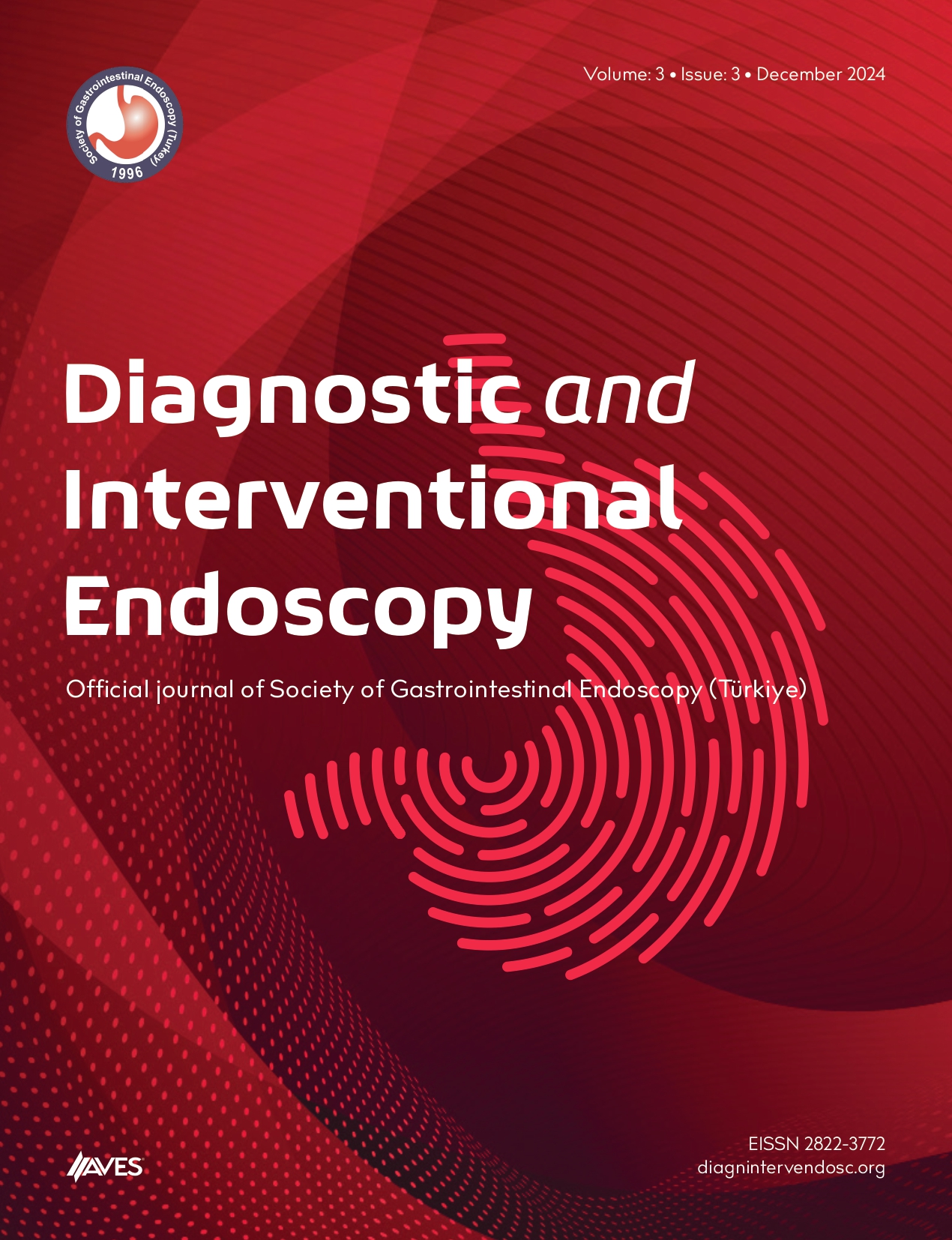Objective: Gallstone disease is a common health problem in the general population. Cholecystectomy is the only option in cases requiring treatment. The procedure carries a risk of postoperative biliary leak. Endoscopic retrograde cholangiopancreatography is a safe and effective treatment method for biliary leaks. Post-endoscopic retrograde cholangiopancreatography pancreatitis is the most common complication of endoscopic retrograde cholangiopancreatography and although many cases are mild, serious clinical pictures and fatal cases may occur. In this article, we aimed to investigate if the biliary leak is an independent factor in the development of post-endoscopic retrograde cholangiopancreatography pancreatitis.
Methods: This retrospective study was carried out in Antalya Training and Research Hospital, University of Health Sciences, Department of Gastroenterology. Patients who underwent endoscopic retrograde cholangiopancreatography were investigated retrospectively through digital data in the hospital registry and procedure recordings. Between the years 2013 and 2023, 71 patients who underwent endoscopic retrograde cholangiopancreatography for post-cholecystectomy biliary leaks were included in the study. Patients who underwent endoscopic retrograde cholangiopancreatography for other causes were defined as the control group, consisting of 100 patients.
Results: Compared to the control group, which included patients without biliary leak who underwent endoscopic retrograde cholangiopancreatography, no significant difference was found in the development of post-endoscopic retrograde cholangiopancreatography in the biliary leak group. Post-endoscopic retrograde cholangiopancreatography development was related to longer post-procedural hospitalization times for both the biliary leakage and control groups and this difference was statistically significant.
Conclusion: Biliary leaks and their management is an important part of gastroenterology practice. Being mindful of factors that may increase procedure-related risks like post-endoscopic retrograde cholangiopancreatography is vital for both the patient and the healthcare team
Cite this article as: Öcal S, Duman A, Buldukoğlu OC, et al. Do biliary leaks alter the risk of post-endoscopic retrograde cholangiopancreatography pancreatitis? Diagn Interv Endosc. 2023;2(2):43-45.

.png)


.png)